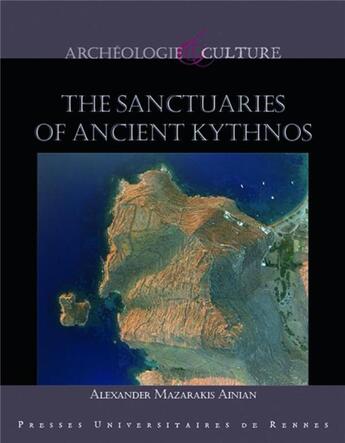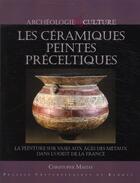-
Date de parution : 28/03/2019
-
Editeur :
Pu De Rennes
-
EAN : 9782753577091
-
Série :
(-)
-
Support :
Papier
Résumé:
The research conducted the past thirty years in the ancient capital of the Cycla- dic island of Kythnos (today called Vryokastro) has significantly enriched our knowledge about the material culture and the history of the island. The present book focuses on the sanctuaries of the ancient town.... Voir plus
The research conducted the past thirty years in the ancient capital of the Cycla- dic island of Kythnos (today called Vryokastro) has significantly enriched our knowledge about the material culture and the history of the island. The present book focuses on the sanctuaries of the ancient town. The site was settled in the beginning of the Early Iron Age and a series of urban sanctuaries along the crest of the inhabited hill were founded by the end of the 8th c. B.C. All seem to have been in their floruit during the Archaic and Classical periods, and the one at the North extremity of the Middle Plateau seems to have reached a wider fame in the Mediterranean.
During the Hellenistic period a monumetalisation of the sacred front of the city is observed. Thereafter, the material evidence suggests a gradual decline, which goes in pair with the historical fate of the island. By the 1st century B.C. the size of the city had shrank significantly, serving now occasionally also as a place for exile or as a pirates nest, and the sanctuaries of the upper town were abandoned, with the exception of those of the central area, where certain new cults seem to have been installed. The town was altogether abandoned around the late 6th-early 7th c. A.D.
The book summarises the data deriving both from the systematic survey and excavations of the site, thus casting significant light to the sanctuaries and cults of the Kythnians, including those of Apollo and Artemis, Demeter, Aphrodite, Asclépios and the Samothracian Gods.
Donner votre avis










